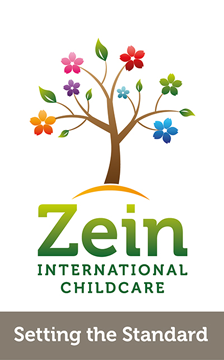In all of our Day Care locations, every child receives a key carer who is dedicated to monitoring and stimulating the development of your child at their individual level.
Educational vision & philosophy
Our vision and philosophy promote a positive growth and development pathway. Learning and educational experiences are created through play-way learning and a themed approach. The pedagogical influences of Reggio Emilia and Montessori combine in a detailed monthly, weekly and daily programme structure that covers visual arts, music, science and creativity, language development, gross and fine motor skills. Committed, trained and experienced educators lovingly support and guide the children, empowering them in their development.
Vertical groups that mimic the home environment
Our Day Care groups offer a loving, safe, fun, happy and healthy environment that provides a homely and nurturing experience that enables children to develop their creativity, individuality and self-confidence to the fullest. Our programme offers a Vertical Group Integration approach for children from ages 0 – 4 years. Vertical grouping mimics the home environment where siblings co-exist side by side and happily interact and learn from each other, building natural cross-age relationships, while developing at their own pace. This grouping approach is integral to our programme and helping to ensure that each child feels happy, loved and at home.
Social & emotional development
We consider ourselves partners in the care of every child. We continually invest in our children’s social-emotional growth – a critical area for all children. It is essential that children feel a sense of security and belonging when parents are not around. We have many techniques in place to reduce anxiety and ensure that your child feels happy, relaxed and safe during their time with us. The dimensions which go together to form the sociol-emotional growth of a child do not evolve naturally.
Consistent and caring educators
The course of social-emotional development—whether healthy or unhealthy—depends on the quality of nurturing attachment and stimulation that a child experiences. A relationship with a consistent, caring and attuned adult who actively promotes the development of these dimensions is essential for healthy social-emotional outcomes in young children. Actively promoting social-emotional competence includes activities such as:
- Creating an environment in which children feel safe to express their emotions
- Being emotionally responsive to children and modelling empathy
- Setting clear expectations and limits (“People in our day care don’t hurt each other.”)
- Separating emotions from actions (“It’s okay to be angry, but we don’t hit someone when we are angry.”)
- Encouraging and reinforcing social skills such as greeting others and taking turns
- Creating opportunities for children to solve problems (“What do you think you should do if another child calls you a bad name?”)
Children who have experiences such as these are able to recognise their and others’ emotions, take the perspective of others and use their emerging cognitive skills to think about appropriate and inappropriate ways of acting.
